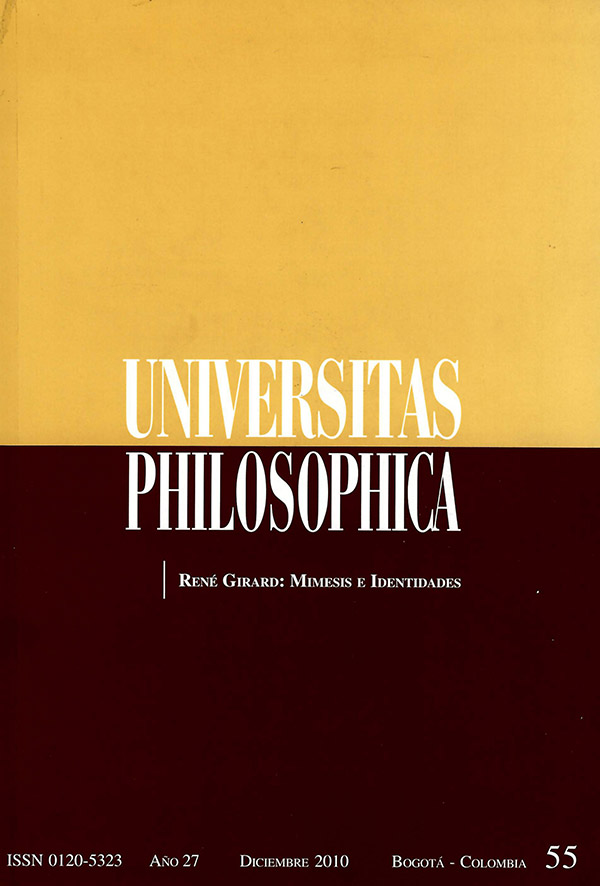Abstract
This lecture aims to illuminate the girardian theory of imitation from a critical perspective of a recent ethnographic research on the mayas Tsotsiles Chamula, from Chiapas, México. Girardian hypothesis of “mimetic desire” presents many possibilities to explain social and cultural conflicts, especially those arising in an “intra-ethnic” way. It also offers opportunities to better understand rites or rituals developments, or customs and traditions as relevant mimetic expressions developed to control the power or the generative force of mimesis when communitarian conflicts increase. However, Girard's theory raises strong criticism from a scientific anthropology, against major theories attempting to explain almost everything; and from the academic space of socio-cultural anthropology as well. From this framework, this paper warns about what is needed in current field studies: first, how to document empirically relevant indicators of interactive power of mimesis and, second, how to test Girard's hypothesis, namely: what be the elusive but very influential variable of “mimetic desire”.
This journal is registered under a Creative Commons Attribution 4.0 International Public License. Thus, this work may be reproduced, distributed, and publicly shared in digital format, as long as the names of the authors and Pontificia Universidad Javeriana are acknowledged. Others are allowed to quote, adapt, transform, auto-archive, republish, and create based on this material, for any purpose (even commercial ones), provided the authorship is duly acknowledged, a link to the original work is provided, and it is specified if changes have been made. Pontificia Universidad Javeriana does not hold the rights of published works and the authors are solely responsible for the contents of their works; they keep the moral, intellectual, privacy, and publicity rights.
Approving the intervention of the work (review, copy-editing, translation, layout) and the following outreach, are granted through an use license and not through an assignment of rights. This means the journal and Pontificia Universidad Javeriana cannot be held responsible for any ethical malpractice by the authors. As a consequence of the protection granted by the use license, the journal is not required to publish recantations or modify information already published, unless the errata stems from the editorial management process. Publishing contents in this journal does not generate royalties for contributors.


